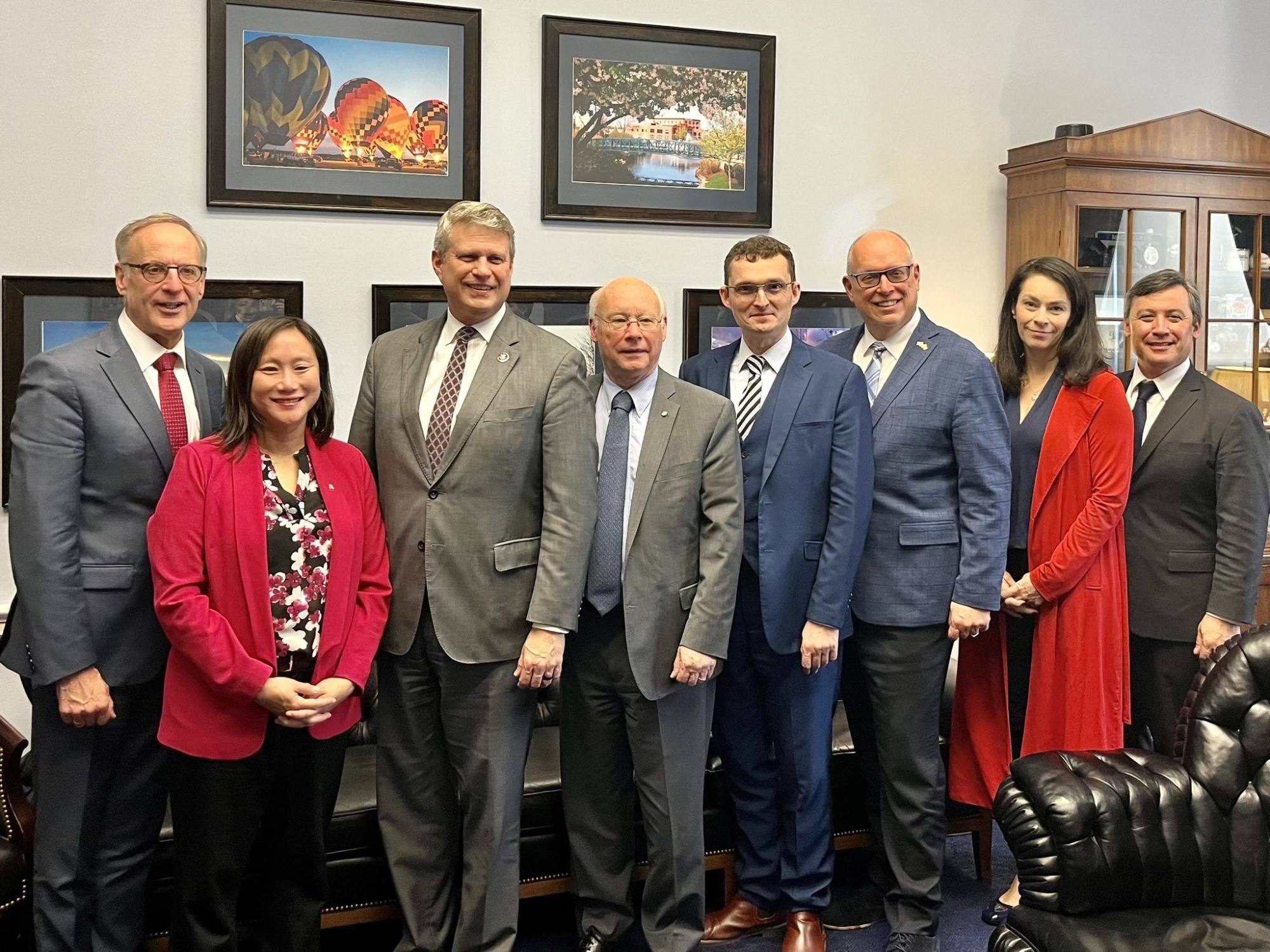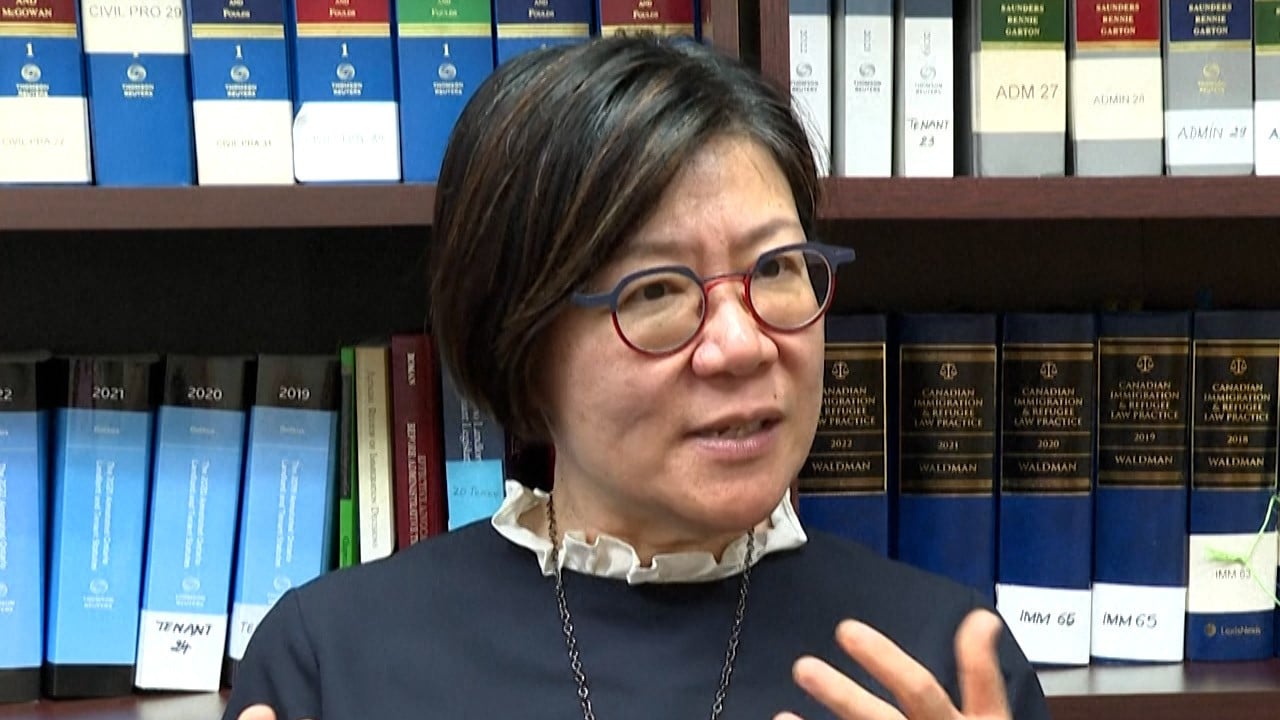
Canadian parliamentary delegation visits US Congress to discuss China policies
- Members of House of Commons Special Committee on the Canada – People’s Republic of China Relationship go to Washington
- ‘By coordinating with our US counterparts, we can ensure that the work of our committee is amplified,’ panel’s chair says
Members of a special Canadian parliamentary committee on China met with their US counterparts for the first time last week, signalling closer alignment of the two legislatures’ approaches towards Beijing.
Seven members from Canada’s top four political parties met with a bipartisan group of representatives from the US House select committee on China, as well as with members of other House and Senate committees. They also held discussions with analysts from think tanks like the Wilson Centre and the Centre for Strategic and International Studies.
“By coordinating with our US counterparts, we can ensure that the work of our committee is amplified,” Ken Hardie, chair of the Canadian special committee and an MP of the ruling Liberal Party, said.
“I hope that this discussion with the US select committee will mark the beginning of an ongoing dialogue between both committees.”

Hardie noted that the US committee was mainly focused on “competition” with China while the Canadian panel is focused more generally on the Canada-China relationship.
Even so, he said he hoped US members could visit Canada for further discussions.
“We’re both Pacific nations and we can complement each other’s actions,” Hardie said, noting “the missed opportunity” when each country failed to include the other in their Indo-Pacific strategies. “The US right now is engaged in a lot of economic discussions with Pacific Rim countries, but not Canada.”
Hardie suggested that the US and Canada could coordinate on responses to Beijing’s alleged attempts to target the Chinese diaspora and influence education in both countries.
And just as the US Congress has on the White House, the Canadian Parliament has increasingly constrained Ottawa’s diplomatic efforts towards Beijing, a reflection of plunging public sentiment towards China in recent years.
Both sides shared concerns about Beijing’s “bellicose activities towards Taiwan”, the risks associated with Chinese acquisition of foreign companies, the fragility of North American investments in China – while agreeing not to isolate China, he added.
Members of the Canadian special committee, including Tom Kmiec of the Conservative Party, Heather McPherson of the New Democratic Party and Stéphane Bergeron of the Bloc Québécois, highlighted human rights as a key discussion topic.
The two sides discussed “advocating for stronger human rights legislation, improving protection against forced labour, and implementing a stronger human rights framework for companies working abroad”, McPherson said.
Canada and the US are largely aligned on China policy but with differences in emphasis.
Regarding suspected Chinese interference or intellectual property theft, Gordon Houlden of the China Institute at the University of Alberta said that the US had been more active in using its justice system to address such cases. Canada tended to have “greater caution about going the public route” in approaching these cases, he said.
Canada is also more susceptible to China’s economic coercion, and has fewer bargaining chips to repair its relationship with China compared to the US, analysts said.
The House of Commons Special Committee on the Canada – People’s Republic of China Relationship was established in 2019, while the House Select Committee on the Strategic Competition Between the United States and the Chinese Communist Party was established earlier this year. Both have the mandate to present policy recommendations.
While the Canada committee may find useful models in the US, Pascale Massot of the University of Ottawa said there was also room to learn from its failures in targeting people of Chinese or Asian origin.
“We should be mindful of excesses that we have seen south of the border [and] make sure that the consequences of the policies that are implemented are not borne excessively by innocent people for no other reason than their heritage.”
Other distinctions between the US and Canada may also come into play. Canada still seeks multilateral trade pacts, for example, while the US has cooled on them in recent years.
“The United States has been unable over the past five plus years to get behind multilateral trade agreements … while on both sides of the aisle in Canada, there is support for global trade agreements,” Massot said.


